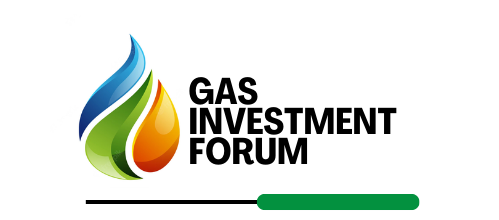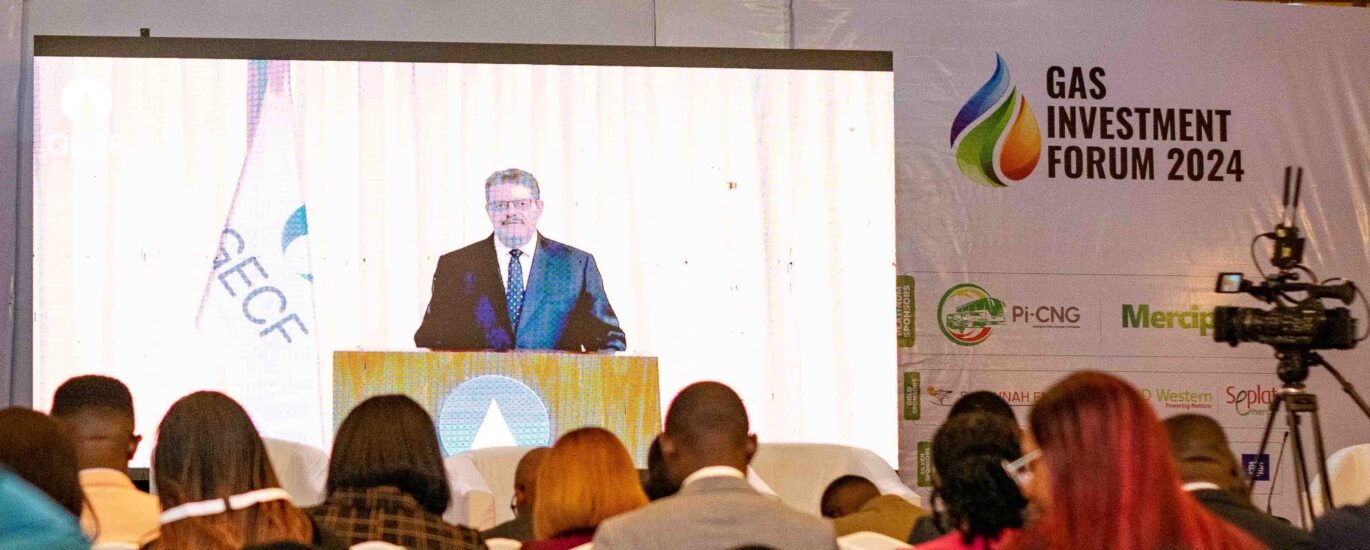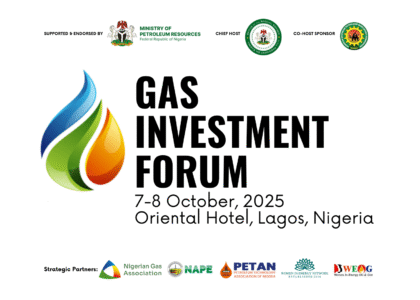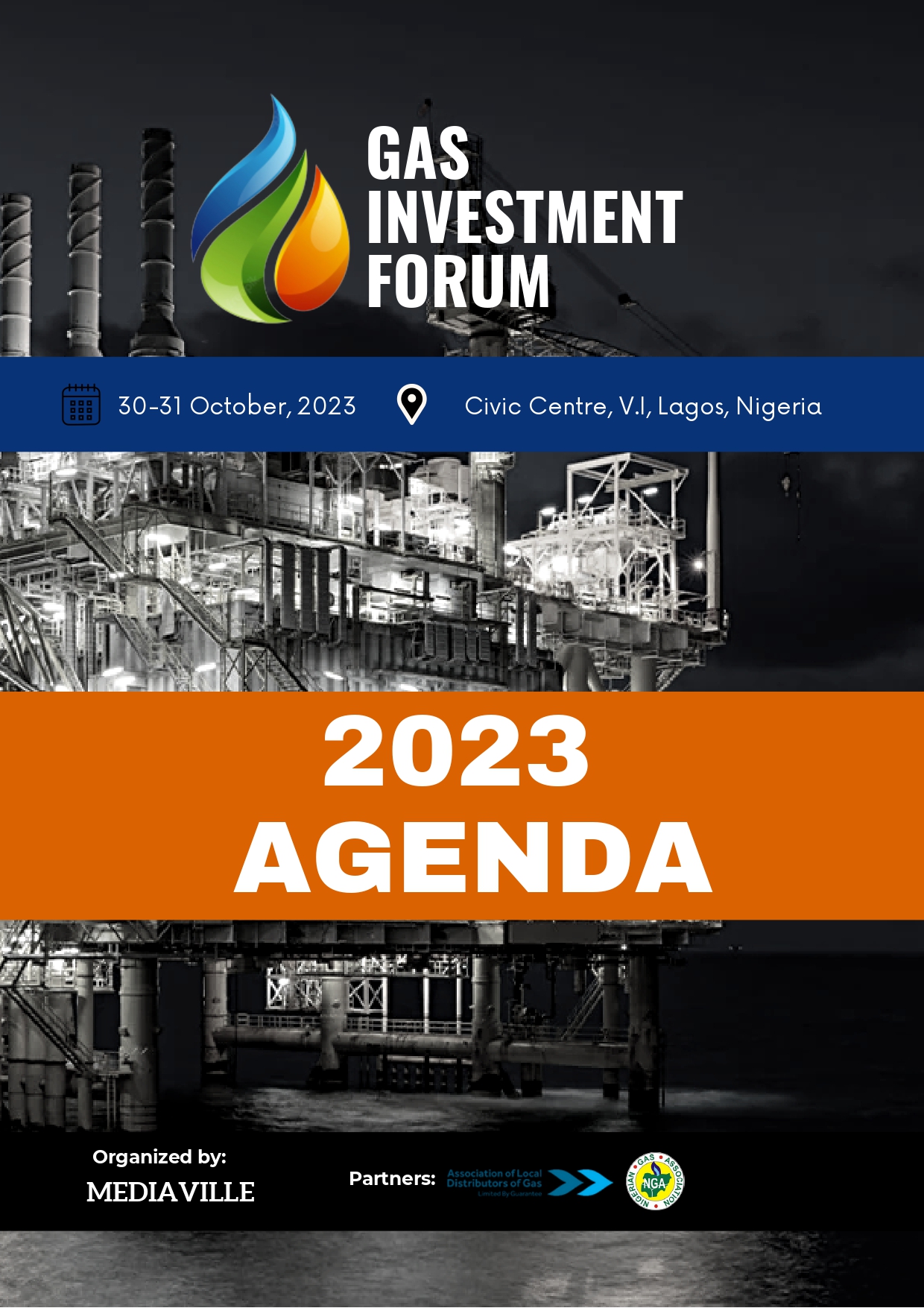The Gas Exporting Countries Forum (GECF) has launched the 9th Edition of its Global Gas Outlook 2050, reaffirming Nigeria’s strategic position as a leading natural gas powerhouse in Africa. The report, which provides a long-term analysis of global gas markets, highlights Nigeria’s expanding production capacity, growing LNG exports, and increasing domestic demand as key drivers of Africa’s energy transformation.
Gas Investment Forum, a premier platform for fostering investment and growth in Nigeria’s gas sector, welcomes the report’s emphasis on Africa’s burgeoning natural gas potential and the central role Nigeria is poised to play in shaping its future.
The GECF’s latest outlook underscores the strategic importance of natural gas in the evolving global energy landscape, recognizing it as a crucial fuel for economic development and a vital component of the energy transition. The report projects Africa as the region with the strongest relative growth in natural gas demand, significantly contributing to global production increases by 2050.
Nigeria, a prominent and influential member of the GECF and the proud host country of the internationally recognized Gas Investment Forum, is unequivocally identified within the outlook as the central driver of natural gas potential in Sub-Saharan Africa. Possessing the continent’s largest proven gas reserves, estimated at 5.9 trillion cubic meters as of 2023, Nigeria is projected to be a leading contributor to the anticipated surge in African gas production, reaching an impressive 127 bcm by 2050. Furthermore, Nigeria, alongside Mozambique, is forecasted to jointly command 63% of Africa’s substantial 585 bcm LNG output by 2050, firmly establishing Nigeria as a cornerstone supplier of natural gas to global markets.
The GECF outlook strongly aligns with Nigeria’s ambitious “Decade of Gas” initiative, acknowledging the nation’s rapidly growing domestic gas demand fueled by expanding gas-fired power generation spurred by rising electricity needs, significant industrial expansion within the petrochemical and fertilizer sectors, and the increasing adoption of cleaner energy alternatives such as Compressed Natural Gas (CNG) and Liquefied Petroleum Gas (LPG). The report’s clear emphasis on the necessity of substantial upstream investments to meet future global demand positions Nigeria as a highly attractive destination for both domestic and international capital, particularly with the improved fiscal terms and regulatory framework introduced by the Petroleum Industry Act (PIA) of 2021.
According to the GECF Global Gas Outlook 2050, natural gas will play a pivotal role in Africa’s energy security, with Nigeria expected to lead Sub-Saharan Africa’s gas demand growth. The region is projected to drive nearly 92% of Africa’s overall natural gas demand growth through 2050, highlighting the transformative role of gas in addressing energy and development challenges.
Nigeria alone is forecast to add more than 75 bcm between 2023 and 2050, largely driven by increased gas-fired power generation, industrial growth, and the expansion of petrochemical and fertilizer production facilities.
The expansion of Nigeria’s gas pipeline network, including major projects like the Obiafu-Obrikom-Oben (OB3) and Ajaokuta-Kaduna-Kano (AKK) gas pipelines, is recognized as crucial for ensuring a more reliable gas supply to industrial hubs and power plants across the nation, bolstering its overall energy system and further solidifying Nigeria’s standing as a key supplier of natural gas to global markets. Nigeria is also strategically exploring new frontiers with its first Floating Liquefied Natural Gas (FLNG) project expected by late 2026, representing a pivotal step in monetizing its vast offshore gas resources and potentially paving the way for future projects that will significantly boost the country’s LNG export capabilities.
Sheik Mishal bin Jabor Al-Thani, GECF Executive Board Member, stated, “The GECF Global Gas Outlook 2050 provides policymakers, investors and stakeholders with valuable insights into the future of global energy markets. Today’s launch comes at a pivotal moment. The energy sector must evolve to meet these evolutions while addressing energy security, sustainability and economic growth. Despite the world’s tremendous progress, energy poverty remains a pressing challenge and natural gas plays a central role in meeting the world’s challenges.”
Africa is expected to exhibit the fastest average annual growth rate in natural gas production globally at 2.5%, adding 250 bcm by 2050. This growth will be spearheaded by key countries with substantial natural gas reserves and expanding production capabilities. Nigeria, leveraging its vast reserves and policy reforms under the Petroleum Industry Act (PIA), is projected to reach 127 bcm by 2050. Other African nations, including Mozambique, Mauritania, and Senegal, are also expected to significantly contribute to the continent’s gas boom through new LNG projects and infrastructure developments.
Speaking on the report’s findings, GECF Secretary General Mohamed Hamel emphasized that Africa, led by Nigeria, will be a major driver of global gas growth in the coming decades. “Nigeria holds some of the world’s largest proven gas reserves and is already playing a critical role in global energy markets. With the right investments and policies, the country is poised to become an even stronger force in the global LNG and pipeline gas trade,” he stated.
With over $11.1 trillion in global gas investments projected by 2050, Nigeria is expected to attract significant capital inflows to develop its vast reserves and expand its LNG and gas processing infrastructure. Industry stakeholders at the Gas Investment Forum have reiterated the need for sustained government support, regulatory reforms, and strategic partnerships to fully harness the opportunities outlined in the GECF report.
Africa, particularly Sub-Saharan Africa, is set to see a substantial increase in LNG exports, leveraging its vast untapped natural gas reserves. Currently accounting for 10% of global LNG exports, Africa’s share is projected to rise to 15% by 2050. The region’s LNG exports are expected to increase by 78 Mt, contributing one-fifth of the total global LNG supply increase over the forecast period. Much of this growth is anticipated during the 2030s as investments in Angola, Mauritania, Mozambique, Nigeria, and Senegal drive new liquefaction capacity.
Ongoing infrastructure development, improved investment climates, and growing partnerships with global energy companies will be crucial in unlocking Africa’s full LNG export potential. Given the continent’s proximity to European and Asian demand centers, Africa is well-positioned to play an increasingly strategic role in the global LNG trade, offering a diverse and flexible supply source in an evolving energy landscape.
Gas Investment Forum remains steadfast in its commitment to facilitating the crucial partnerships and investments necessary to fully realize Nigeria’s immense gas potential, as powerfully highlighted in the GECF’s latest comprehensive analysis. The Forum serves as the premier platform in West Africa, bringing together key government stakeholders, leading local and international energy companies, prominent financial institutions, and cutting-edge technology providers to collectively drive the sustainable development and efficient utilization of Nigeria’s abundant gas resources, thereby fostering regional growth and industrialization.
The Gas Exporting Countries Forum (GECF) was a highly valued and active participant at the successful last edition of the Gas Investment Forum in October 2024. Their expert insights and significant contributions were invaluable in shaping the high-level discourse and driving tangible progress within both the global and Nigerian gas sectors. The Forum eagerly anticipates welcoming the GECF again to its upcoming edition scheduled for October 7th and 8th, 2025, where they will further elaborate on the findings of the Global Gas Outlook 2050 and explore concrete global investment opportunities within Nigeria’s dynamic “Decade of Gas.”
Gas Investment Forum stands as West Africa’s premier energy investment conference, uniting investors, project operators, financiers, technology providers, and government to drive regional growth and industrialization. Discover unparalleled opportunities at www.gasinvestmentforum.com .






